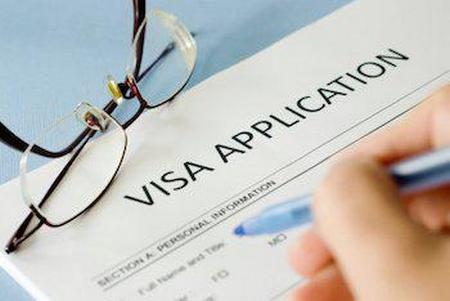H-1B Visas
 From debates on immigration reform in Washington to discussions on the future of the tech industry in Silicon Valley, the use of H-1B visas often takes center stage. H-1B Visas are established under section 101(a)(15)(H) of the Immigration and Nationality Act, and allow businesses in the United States to temporarily hire foreign workers in specialty occupations such as scientists, computer programmers, and engineers. And according to U.S. Citizenship and Immigration Services, the statutory cap of 65,000 H-1B visa holders for 2014 was reached within the first week of the filing period.
From debates on immigration reform in Washington to discussions on the future of the tech industry in Silicon Valley, the use of H-1B visas often takes center stage. H-1B Visas are established under section 101(a)(15)(H) of the Immigration and Nationality Act, and allow businesses in the United States to temporarily hire foreign workers in specialty occupations such as scientists, computer programmers, and engineers. And according to U.S. Citizenship and Immigration Services, the statutory cap of 65,000 H-1B visa holders for 2014 was reached within the first week of the filing period.
Due to the effectiveness of the program, and in light of its potential expansion through immigration reform, it may be useful to review some of the basic rules surrounding H-1B visas.
Specialty Occupation
First, although only people who work in “specialty occupations” are eligible for H-1B visas, the regulations provide a relatively broad definition for application. A “specialty occupation” exists where a theoretical and practical application of highly specialized knowledge in a certain field is required. The position must also be one for which the attainment of a bachelor’s degree is necessary. Additionally, for anyone that is in the modeling industry, there is a special category of visas with less stringent restrictions if you are a fashion model of prominence.
Sponsorship and Duration
Work authorization through the H-1B visa is limited to employment by the sponsoring business. Additionally, under most circumstances the maximum stay is limited to six years, although in some circumstances there are exceptions to this rule. If an H-1B visa holder wants to stay in the U.S. beyond the normal six year period, and has not received permanent resident status, he or she has to stay outside of the United States for one year before obtaining another visa.
Family Considerations
If you obtain an H-1B visa, you can bring your spouse and all unmarried children under 21 years old to the United States under a related visa category for dependents. Although dependents are not allowed to work in the United States, they are allowed to go to school, drive, and participate in other aspects of life in the U.S.
As the world continues to globalize, and as the United States continues to inch ever closer to reforming immigration rules, the laws regulating H-1B visa will surely be updated along the way. If you or someone you know is interested in applying for an H-1B visa, contact an Illinois immigration attorney today.
 English,
English,
 Spanish,
Spanish,
 Polish,
Polish,
 Urdu
Urdu













 Make a Payment
Make a Payment



